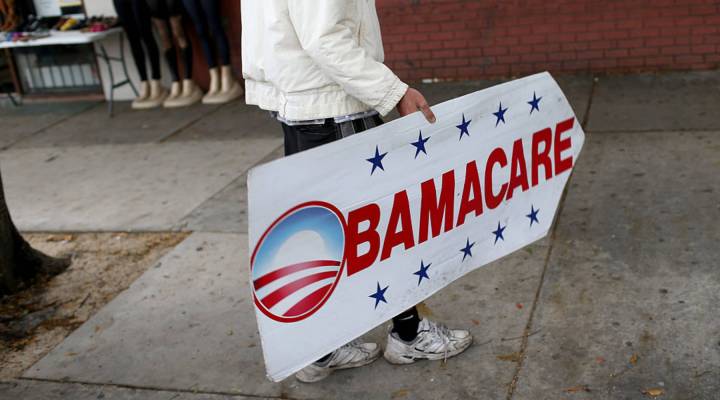
To fix Obamacare, look back at another health care battle

“Repeal.” That pretty much sums up the Republicans’ approach to Obamacare in the first eight months of this year. And now, the last quarter of 2017, the word is turning to “fix” as the Senate begins a series of bipartisan hearings this week.
The priority is stabilizing the market, which means convincing insurance companies they won’t lose their shirts selling Obamacare policies. Politically, that may be tough, but lawmakers could look to the not-so-distant past, when nervous insurers, worried about losing cash, started to ditch a relatively new insurance market.
That’s was the situation after the private alternative to Medicare — what’s now called Medicare Advantage — had launched.
“Back in the early 2000s, it was kind of withering,” said Austin Frakt, a Boston University health economist. Insurers were pulling out fast, selling policies in fewer and fewer places. “It took an act of Congress in 2003 to, frankly, put more money into the program. That kind of juiced it,” Frakt said.
The infusion reignited the market. Insurers returned, and they invested part of the new money in beefing up the product and attracting more seniors. Within four years, insurers were selling policies in every market in the country.
Today, Medicare Advantage enrollment is at a record high.
“If we want to make Obamacare better, we shouldn’t be scratching our heads very hard about how to make it function, because we have functioning examples,” Frakt said. “So we should look at them.”
In the current climate, it’s unlikely Congress will entice insurers back to the exchanges by approving more generous subsidies. Borrowing a page from a Medicare program that covers prescription drug costs for seniors would be perhaps more politically palatable to lawmakers. Under Part D, the federal government picks up most of the tab for seniors with the most expensive drug costs. It’s called reinsurance.
“Reinsurance is a great tool,” said John Bertko, a longtime health executive and current chief actuary for Covered California, the state’s exchange. “More insurers would come back in if they knew they had the certainty of some protection.”
Obamacare architects baked in reinsurance, but only as a temporary policy. It expired last year.
If Congress wants to stabilize Obamacare, the last decade alone offers important health insurance lessons.
“Certainly, we know a lot of things that we should be doing that we are not currently doing,” said Leemore Dafny, a Harvard Business School health economist. “But that doesn’t make it an easy situation,” she added.
Dafny said clearly, our political leaders aren’t committed to making this work as well as it could. But she said it’s too simple to think we can cut and paste our way out of Obamacare’s shortcomings. After all, if we had a firm grasp on how to design healthy insurance markets, we would have done it from the start.
| What next for health care in the United States? |
| How Trump could still cause Obamacare to collapse |
| The part of Obamacare even Republicans like |
There’s a lot happening in the world. Through it all, Marketplace is here for you.
You rely on Marketplace to break down the world’s events and tell you how it affects you in a fact-based, approachable way. We rely on your financial support to keep making that possible.
Your donation today powers the independent journalism that you rely on. For just $5/month, you can help sustain Marketplace so we can keep reporting on the things that matter to you.


















